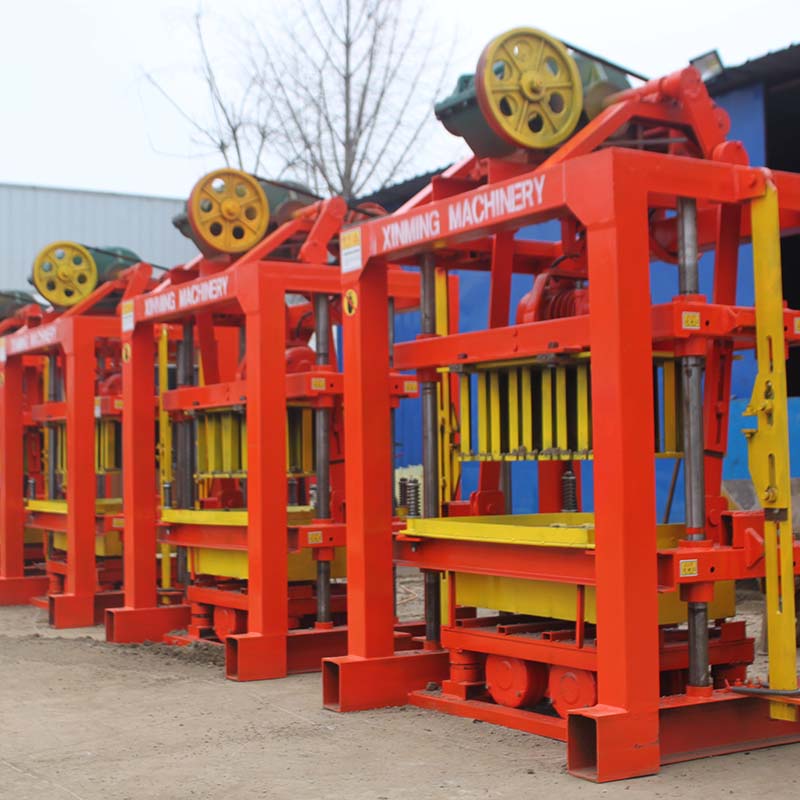
Image source Aiwei Block Machines
Introduction
Brick making machines have revolutionized the construction industry by automating and streamlining the brick production process. These machines come in various types and designs, each with its own unique features and capabilities. In this article, we will explore the different types of brick making machines and their applications, highlighting their functionalities, advantages, and suitable construction projects.
Clay Brick Making Machines
Clay brick making machines are one of the most common types of brick making machines available in the market. These machines are designed specifically for producing clay bricks, which are widely used in residential, commercial, and industrial construction projects. Clay brick making machines can be further categorized into the following subtypes:
Manual Clay Brick Making Machines: These machines are operated manually, requiring human effort for tasks such as feeding the clay, shaping the bricks, and removing them from the machine. They are typically used for small-scale brick production and are cost-effective for projects with limited brick requirements.
Semi-Automatic Clay Brick Making Machines: Semi-automatic machines combine manual labor with automated processes. They require human intervention for tasks such as feeding the raw materials and transferring the formed bricks. These machines offer higher production capacities compared to manual machines and are suitable for medium-scale brick production.
Fully Automatic Clay Brick Making Machines: Fully automatic machines operate with minimal human intervention. They have automated systems for feeding raw materials, shaping bricks, and stacking them for curing or drying. Fully automatic clay brick making machines are ideal for large-scale brick production, offering high efficiency and productivity.
Concrete Brick Making Machines
Concrete brick making machines are designed specifically for producing concrete bricks, which are widely used in various construction projects, including buildings, roads, and pavements. These machines can be further classified into the following types:
Stationary Concrete Brick Making Machines: These machines are stationary and operate in a fixed location. They have a large production capacity and can produce a high volume of concrete bricks per hour. Stationary concrete brick making machines are suitable for large-scale construction projects requiring a consistent supply of concrete bricks.
Mobile Concrete Brick Making Machines: Mobile machines are designed for on-site brick production, offering flexibility and convenience. These machines are mounted on trailers or trucks, allowing them to be easily transported to construction sites. Mobile concrete brick making machines are ideal for projects with varying brick requirements or for construction sites with limited space.
Fly Ash Brick Making Machines
Fly ash brick making machines are specifically designed for producing bricks using fly ash, a by-product of coal combustion in thermal power plants. These machines offer several advantages, including reduced environmental impact and improved strength and durability of the bricks. Fly ash brick making machines can be classified as follows:
Hydraulic Fly Ash Brick Making Machines: Hydraulic machines use hydraulic pressure to compress the fly ash and other raw materials into bricks. They offer precise control over the brick-making process, resulting in high-quality bricks with consistent dimensions. Hydraulic fly ash brick making machines are suitable for large-scale production and offer high efficiency and automation.
Mechanical Fly Ash Brick Making Machines: Mechanical machines rely on mechanical pressure or vibration to compact the fly ash mixture and form bricks. These machines are cost-effective and suitable for small to medium-scale production. They are relatively simpler in design and operation compared to hydraulic machines.
Interlocking Brick Making Machines
Interlocking brick making machines are designed to produce interlocking bricks that fit together like puzzle pieces without the need for mortar or adhesive. These bricks have unique grooves and protrusions that enable them to interlock securely, providing strength and stability to the structure. Interlocking brick making machines can be further categorized into the following types:
Manual Interlocking Brick Making Machines: Manual machines require human effort to operate, including the feeding of raw materials and the manual removal of the formed bricks. These machines are suitable for small-scale production and are commonly used in rural areas or in projects with limited access to electricity.
Semi-Automatic Interlocking Brick Making Machines: Semi-automatic machines combine manual labor with automated processes. They have features such as automatic raw material feeding and brick ejection systems. Semi-automatic interlocking brick making machines offer higher production capacities compared to manual machines and are suitable for medium-scale production.
Fully Automatic Interlocking Brick Making Machines: Fully automatic machines operate with minimal human intervention. They have automated systems for raw material feeding, brick formation, and brick ejection. Fully automatic interlocking brick making machines offer high production capacities and are ideal for large-scale production.
Conclusion
The construction industry has witnessed significant advancements in brick making machines, catering to a wide range of construction projects and materials. From clay brick making machines to concrete, fly ash, and interlocking brick making machines, each type offers unique features and advantages. The selection of the appropriate brick making machine depends on factors such as the type of bricks required, production capacity, project scale, and available resources.
By adopting the right type of brick making machine, construction companies can enhance efficiency, reduce costs, and improve the quality and sustainability of brick production. Furthermore, continuous research and development in brick making machine technology will likely lead to further innovations, expanding the capabilities and applications of these machines in the construction industry.
